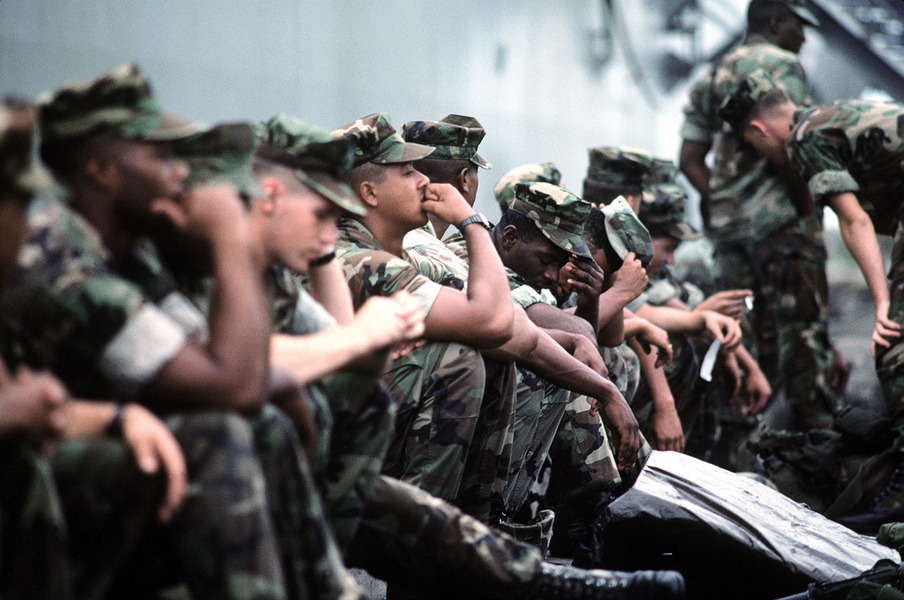State Department Hackers?
The Associated Press is reporting that,
Secretary of State Hillary Rodham Clinton says U.S. cyber experts hacked al-Qaeda propaganda online in Yemen, changing ads that bragged about killing Americans into ads that showed the death toll of al-Qaeda attacks against Yemenis. Clinton says the cyberattack was launched by State Department specialists who patrol the Web
Published by The Lawfare Institute
in Cooperation With

The Associated Press is reporting that,
Secretary of State Hillary Rodham Clinton says U.S. cyber experts hacked al-Qaeda propaganda online in Yemen, changing ads that bragged about killing Americans into ads that showed the death toll of al-Qaeda attacks against Yemenis. Clinton says the cyberattack was launched by State Department specialists who patrol the Web and social media to counter al-Qaeda's attempts to recruit new followers. It was a rare public admission of the ongoing covert cyber war against extremists.Sounds great to me, but it's also news to me that the State Department employs hackers who conduct offensive operations. Is this true? Does anyone know anything about this? And under what legal authority do they operate? Just curious. UPDATE: The "hack" in question appears to have been something less than a hack. Stay tuned. FURTHER UPDATE: Aaron Zelin, an expert on jihadi groups and their statements and discussion forums at the Washington Institute for Near East Policy, writes in with the following helpful clarification:
I'm not sure about the legal aspect, but the center within the State Department that did what they did were not hacking anything. They photoshopped a picture put on a Yemeni forum by Ansar al Shariah in Yemen. They then switched some words and pictures in it and posted it back to the Yemeni forum, and when they do these types of operations they state that they are from the center. So I think it's a mischaracterization to call it a hack. Rather, it's more engagement and counter narrative.Moreover, Zelin says that the activity "was not . . . covert and that it wasn't Secretary Clinton that misinformed" as to what happened, "but the AP reporter." I will see if I can get the transcript of exactly what Secretary Clinton did and didn't say. STILL FURTHER UPDATE: Zelin is correct. Here is what Secretary Clinton actually said:
We know we need to do a better job contesting the online space, media websites and forums where al-Qaida and its affiliates spread their propaganda and recruit followers. So at the State Department, we’ve launched a new interagency Center for Strategic Counterterrorism Communications. It’s housed at the State Department, but it draws on experts from the intelligence community and the Defense Department, including Special Operations Forces. The nerve center in Washington is linking up to military and civilian teams around the world and serving as a force multiplier for our embassies’ communications efforts. Together, we are working to pre-empt, discredit, and outmaneuver extremist propagandists. A digital outreach team of tech savvy specialists – fluent in Urdu, Arabic, Somali – is already patrolling the web and using social media and other tools to expose the inherent contradictions in al-Qaida’s propaganda and also bring to light the abuses committed by al-Qaida, particularly the continuing brutal attacks on Muslim civilians. For example, a couple of weeks ago, al-Qaida’s affiliate in Yemen began an advertising campaign on key tribal web sites bragging about killing Americans and trying to recruit new supporters. Within 48 hours, our team plastered the same sites with altered versions of the ads that showed the toll al-Qaida attacks have taken on the Yemeni people. And we can tell that our efforts are starting to have an impact, because we monitor the extremists venting their frustration and asking their supporters not to believe everything they read on the Internet. (Applause.)And as to legal authorities, the legal authority for the Center for Strategic Counterterrorism Communications is Executive Order 13584, entitled “Developing an Integrated Strategic Counterterrorism Communications Initiative.” Thanks to Matt Armstrong--former Executive Director of the U.S. Advisory Commission on Public Diplomacy, who blogs at MountainRunner.us—for sending along the EO. I love Lawfare’s readership!
Benjamin Wittes is editor in chief of Lawfare and a Senior Fellow in Governance Studies at the Brookings Institution. He is the author of several books.


.jpg?sfvrsn=d5e57b75_5)


